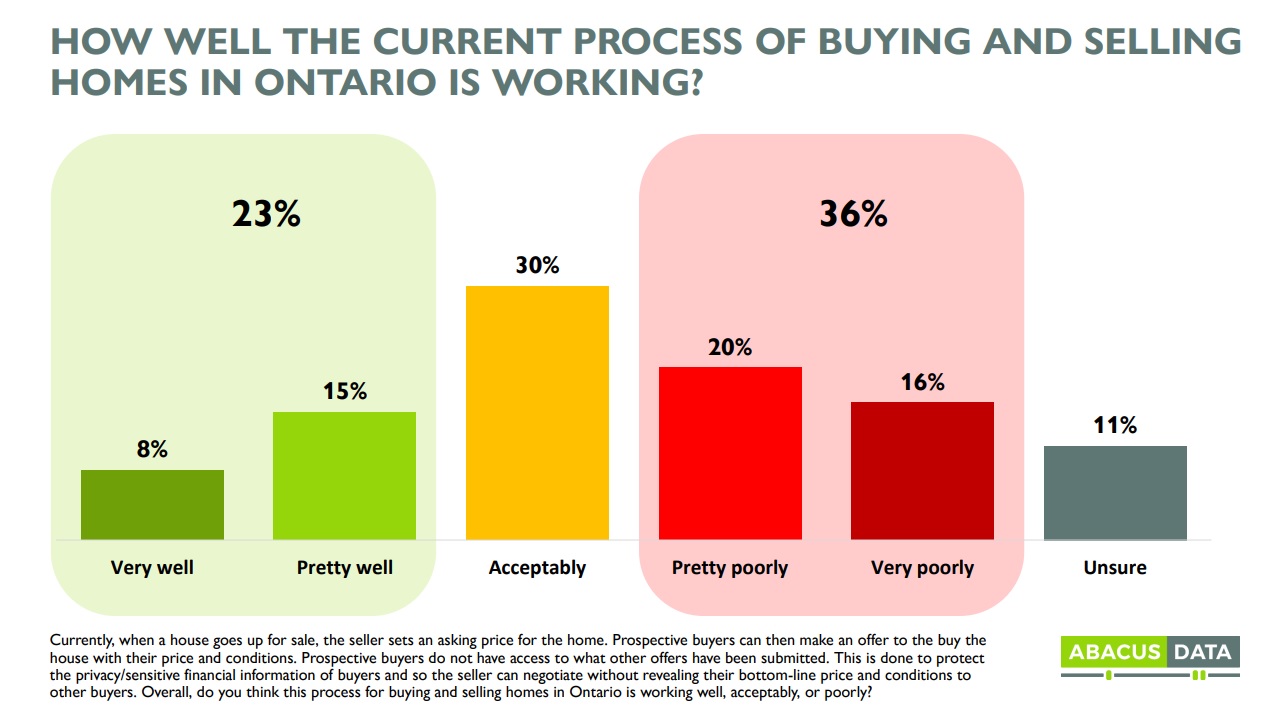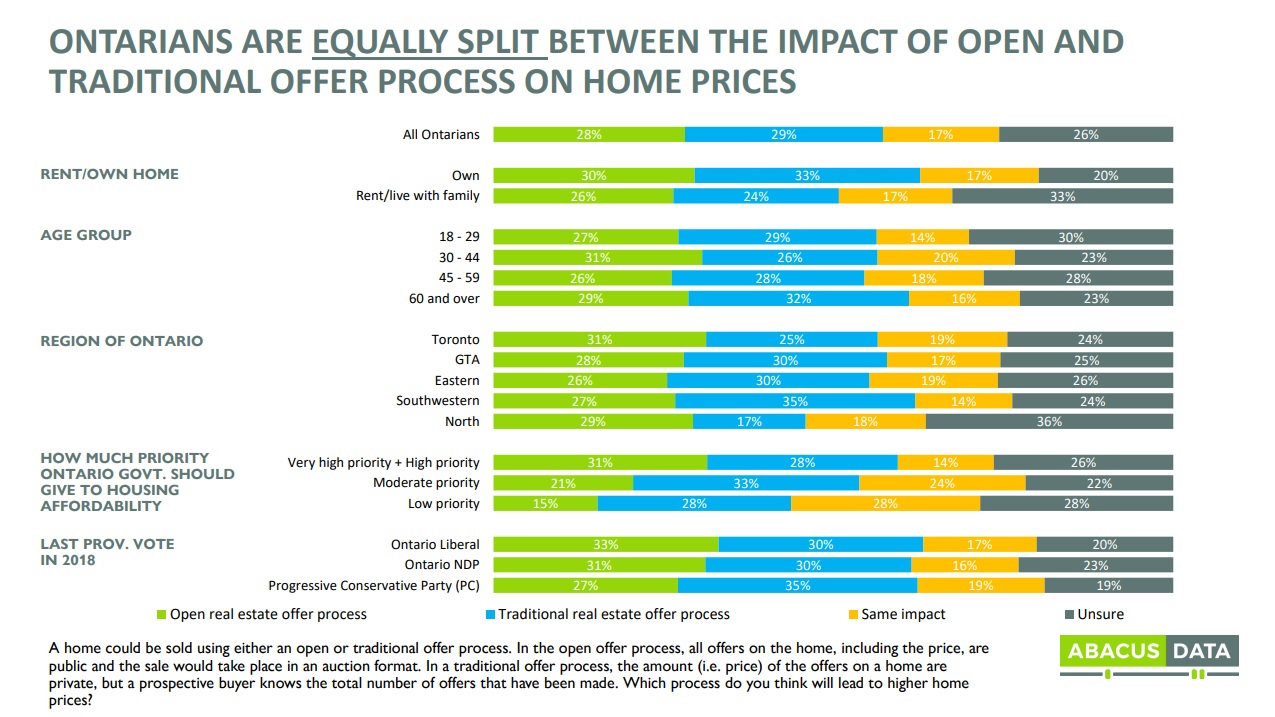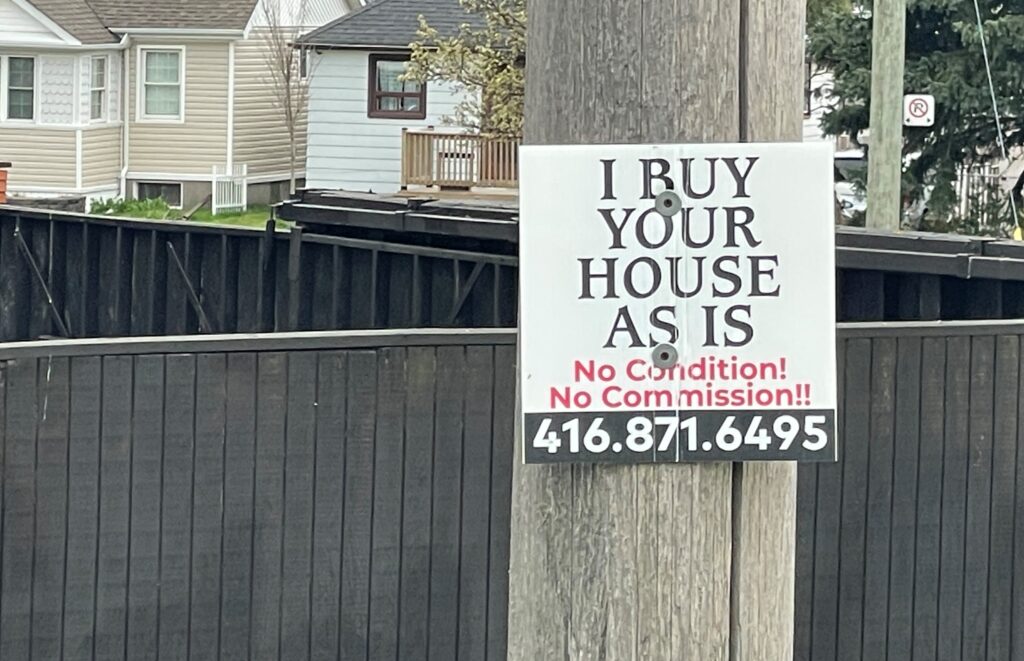If you’re a parent you’ve probably already experienced this phenomenon, but here goes…
Ask your child, “Would you rather have one marshmallow now, or ten marshmallows tonight.”
Your child is going to choose that one marshmallow now, almost certainly.
What’s more, is that later that evening, your child is likely going to ask, “Can I get those ten marshmallows now?”
This point is to illustrate two things:
1) People don’t always know what’s best for themselves
2) People often don’t understand cause-and-effect
In this case, I’m talking about children because it’s an easy example to use.
But if we look at the way governments operate, either through fiscal or social legislation, it can become a very slippery slope.
What if a public opinion poll showed 71% support for a particular law or piece of legislation but the government refused to implement it? What if that support level was 81%?
I’m sure we could argue both for and against the idea of a government, or governing body, adhering to opinion polls.
But what if the people had no idea what they were talking about?
What if you asked 35,000,000 Canadians, “Would you like the Royal Canadian Mint to print off $1,000 in cash and give it to you?” What if they all said “yes,” and thus $35 Billion was printed and put into the economy, thus massively increasing inflation in the process, and adding to the federal debt?
I think if you asked 35,000,000 Canadians if they wanted the money, many would say “yes,” but overall, the population would not be better off.
My point once again is that opinions, while an opinion can’t technically be wrong, since it’s somebody’s opinion, I believe we can find many instances where it is.
“In my opinion, the earth is flat.”
That’s not really an opinion, right? I mean, the earth is round. We know this. We have this thing called “science.”
“In my opinion, man evolved from apes.”
Eek. There’s science behind that. But also religion is against it. And the “science” is actually a theory, so does science prove or disprove it? I don’t want to touch this one…
So if you asked a group of people, “Would banning ‘blind bidding’ bring house prices lower?” and 77% said that it would, does their opinion prove that, in fact, banning blind bidding would bring house prices lower?
And what if these people had never bought, sold, or bid on a house? What if they had zero real estate experience?
If you asked a group of people, “Will Auston Matthews score 70 goals in 2022-23,” and 99% said that he would, can we agree that their opinions have zero effect on his ability to do so?
I give you this preamble because, upon reading through the survey that OREA recently conducted with respect to “seller choice in housing reform and housing affordability,” I’m not convinced that the findings are necessarily relevant.
However, it makes for an interesting read, which is why I’m dedicating a Monday morning post to it!
At the very least, the topics and questions tell you what’s on people’s minds.
Abacus Data conducted the survey on behalf of the Ontario Real Estate Association, and you can find the file HERE.
Let’s take a look, I’ll give you my two cents, and we can debate.
Shall we?
Here’s the first slide:

–
This is a fair question, especially to start out.
Simply put: is our ‘system’ working?
I might argue, of course, that when you don’t like the product of the system, you are inherently more likely to blame the system.
Housing prices are high. The market has been in a bull cycle for two decades. So 36% of respondents believe that the system is performing poorly. But what if the price of real estate was lower? What if the average home price in Toronto, instead of being close to $1.3M, was $600,000? Wouldn’t people be less likely to suggest that the “process” of buying and selling homes is poor?
Ask happy home-owners this question and then ask younger, poorer, more envious, would-be home buyers, and you’ll likely see different data.
But that’s why OREA broke everything down for us by demographics!
Have a look:

–
This is in line with my expectations.
60% of those that own believe the system is acceptable to good.
44% of those that don’t own believe the system is acceptable to good.
I actually thought the first number would be higher and the second would be lower.
I also think “unsure” shouldn’t be an option as it makes every stat look worse.
What I found surprising was that when we break this down by age:
58% of those aged 18-29 believe that the system is acceptable to good.
55% of those aged 30-44 believe that the system is acceptable to good.
51% of those aged 45-59 believe that the system is acceptable to good.
51% of those aged 60+ believe that the system is acceptable to good.
This contradicts what we might believe when it comes to those younger, more longing buyers who aren’t in the market and probably don’t like the system.
Does wisdom come with age? Do the older folks know better? Or are they frustrated with the system because their kids can’t afford to buy, and they, themselves, bought with relative ease in the 70’s, 80’s, and 90’s?
The next slide is even more interesting:

–
My eyes automatically scrolled to the bottom, since I knew where this question was going.
There are two issues here:
1) Transparency
2) Under-pricing
Some members of the public believe in “should.”
They also believe in “fair,” and if I had one dying wish, I would love to see if their opinions would change if/when they took their turn at selling.
These members of the opinion believe that it’s only fair that if a seller lists at $999,900, and one bid comes in at $999,900, then the seller should be “forced” to sell their home at that price.
Ten times out of ten, you’ll lose me at “forced.”
In the context of, ye good ‘ole government and the word “forced,” you’ll never convince me of anything.
Here’s a happy medium: if you list at $999,900 and you get one offer for $1,000,000, and you turn it down, you are not permitted to continue advertising the property for $999,900 since it would constitute false advertising.
Easy, right?
Except that the real estate bodies won’t touch this. Even though the Competition Act forbids the above actions, those lame, weak, starfish real estate boards won’t go near it. So launch your complaints, folks. I have.
In any event, the question above uses the word “auction” and we don’t have real estate auctions, but rather “offer nights.” So if we’re going to “force” people to accept the highest bid at a non-existent “auction,” who holds the gun to their head and forces them to sign?
This is such a stupid question and it’s borne of naive, hapless, unsophisticated views of the real estate market and industry.
Also, who are the 6% of people who think that “homeowners should be able to choose how they sell their home and who they sell it to” is a bad idea? I suppose these are the people that want the government to make all our decisions for us.
Also, note that 50% of respondants thought it was a “good idea” or very good idea” for buyers to know what offers have been made before they bid.
Let’s look at how each question was answered, based on demographics:

–
40% of people who own feel it’s a “very good idea” that homeowners should be able to sell however they want, compared to only 28% who rent.
But it’s much more interesting when you break it down by age and look at both “very good idea” and “good idea” overall:
52% for 18-29
68% for 30-44
65% for 45-49
73% for 65+
I would have thought that the younger generation wants to be told what to do less.
But I suppose that the rate of home ownership is lower from ages 18-29, thus these people are more frustrated, and are blaming the “system” for their plight.
Next question:

–
How could anybody answer, “very bad idea” to this?
What’s the alternative, seriously?
If I really stretch, I suppose I could find an issue with “who they sell it to,” in regards to an argument about discrimination. Is that why 4% of Ontarians think it’s a “very bad idea?”
I doubt it.
I think some people just hate all things real estate. Toronto real estate over the last decade has become what defines so many of us. It’s all people talk about. It’s all they look at online. It’s everything to so many. And I can’t help but think that so many people out there are just so goddam tired of it, both those that own and those that don’t, that it’s affecting the answers to these qeustions.
Next:

–
Like I said, 50% say “good idea” but if you add in the 27% who feel it’s “acceptable,” then a whopping 77% are effectively “okay” with this.
Transparency is great. I won’t deny that.
But the process is the issue, as I have demonstrated in full blog posts, like this one:
April 25th, 2022: “The Inevitable Discussion About Blind Bidding”
If the people who were surveyed had educated themselves before answering, perhaps by reading my April blog, I wonder how their answers would have changed.
Here’s my favourite:

–
51% believe it’s a bad idea.
How come only 51%?
Who wants to be forced to do anything?
What’s wrong with having a reserve price in an auction? Geez…
26% of the youngsters think it’s a good idea.
12% of the old fogeys think it’s a bad idea.
I’m shocked that young people want the government this involved in their lives, but I also think many of them have no clue how any of this works, and thus I’m not surprised. In fact, maybe this could have been higher.
But the next slide where I feel that asking “opinions” in a survey becomes flawed.
Let’s say you asked these people the following:
The two main trigonometric functions, sine (sin) and cosine (cos) differ by the addition of the prefix “co” to “cosine.” From where does the “co” derive?
a) Coefficient
b) Complementary
c) Constraint
d) Constant
The average person has no idea how to answer this.
It’s not really a question for which there’s an “opinion.”
Same goes for this:

–
People continue to believe, “If we had an open real estate offer process, prices would be lower.”
But there’s no evidence to support this.
People are answering based on hopes and wishes, and to continue to ask people questions like this simply gives them more of an opportunity to convince themselves of what they want so desperately to believe.
The truth is, 100% of respondants should have said “unsure.”
Here’s the demographic breakdown:

–
The survey didn’t do a good job of showing how that question was asked, since the title of the slides says:
“Ontarians Are Equally Split Between The Impact Of Open And Traditional Offer Processes On Home Prices.”
In the fine print, above, last sentence: “Which process do you think will lead to higher home prices?”
This question was almost asked backwards.
I think people answered which process they want whereas the question, according to the fine print, asks which will lead to higher prices.
In any event, none of these people has any idea which will lead to higher home prices. They’re just guessing. So am I. So are you.
I enjoyed this survey. It’s interesting to see where people’s heads are at, although there are so many other topics and questions that could have been covered.
If you click the link to the survey that I provided above, you’ll see that “BLIND BIDDING” is just sort of floating there, in all caps, in the middle of the first slide, but this survey wasn’t really about blind bidding. Was it supposed to be? The title refers to “choice in housing reform” and “housing affordability.”
I would love to be tasked with asking questions of the general public and have Abacus Data or Ipsos Reid conduct my poll.
So if you could have one of these companies ask 10,000 people one question, which question would it be, and why?
Your question, and the ‘why,’ would be very telling…
































Marty
at 9:31 am
I don’t know. In every sale there is a buyer and a seller.
I presume that in just about every case, right before it occurs, the seller wants the highest price possible and the buyer wants the lowest.
Some of these surveys presume that nearly EVERYONE wants lower housing prices. But as I indicate above, of those actually involved in the sale, only ~50% want lower prices.
I think the system is fine.
Appraiser
at 9:35 am
The term “blind bidding” is modern terminology for a very old practice that until recently was almost a non-issue. In an unprecedented market that witnessed multiple offers on almost every new listing, old norms suddenly became obsolete, but the root cause of the issue continues to be misidentified by some and the solutions misguided.
The new nomenclature does little to enlighten our knowledge of the multiple offer sales process. It seems to have devolved in to strictly a pejorative expression meant to imply that the current approach is inherently flawed and unfair.
Also, due to the recent crazy-hot market, the bulk of the current housing reform discussion appears to be overwhelmingly weighted in favor of the buyers perspective. Just a reminder that an agreement of purchase and sale is a two-sided contract.
Libertarian
at 10:10 am
David, any comments about the article put out by Hudak that seems to refer to this same survey?
https://www.thestar.com/opinion/contributors/2022/05/30/ontarios-next-government-needs-to-keep-the-dream-of-home-ownership-alive.html
In my “opinion”, it’s mostly fluff. What I don’t get is that he acknowledges that housing is expensive, so he wants duplexes and triplexes built. But that’s not what people are complaining about. People want their forever home (at least 3 bed, 3 bath, front and back yard, garage, etc.) for $500,000. At least David tells people that those days are over, but nobody at CREA, OREA, TREBB, or in government does.
Bryan
at 11:03 am
I really quite like the “false advertising” angle David talks about here…. though I’m not sure it would really curb runaway offer nights (assuming that doing so is a goal of the general public…. which it may or may not be), as it would only have an impact after the seller turned an offer down. I could see a world where the first day every under-listed property went live, someone put in an offer at list price and when turned down, pushed for false advertising. It would be fascinating to see the impact, but I don’t think it would do much personally. I think there is a structured solution to that is in between “making someone sell to the highest bidder on offer night, no matter what the price” (which is absolutely bonkers), and the false advertising thing. My suggestion would be to do things backwards, where rather than the buyers submitting the first offer, the seller gives an offer to prospective buyers on offer night and they then sign this offer back with any changes they want.
The way I see it working is that instead of a list price, for all non-private sales, sellers would be required list their homes with a “listing offer” that had everything filled out (price, deposit, closing, chattels, fixtures etc). They would then be required to keep the home listed for at least 7 days (or something) before offer day, giving people time to see the property. On that offer day, the seller would provide a SIGNED copy of the “listing offer” to every buyer who registers by 12pm (or something). If a buyer misses that deadline to register, they cannot bid that night, and thus all buyers would know the number of registered offers before setting a price. Buyers then have until the review time (say 7pm or whatever) to “sign-back” this offer and modify whatever price/conditions they see fit. If a buyer simply signs the offer, it goes firm unless it is beaten by another offer (the offer would need a clause for this). If there are 15 offers, things would proceed almost identically to what happens now (prices escalating over the posted list price/conditions). If there are no offers, things would also proceed almost identically to what happens now (seller either re-lists with a different strategy or lets it sit until an acceptable offer materializes). If there is just one offer that is signed with no changes to the “listing offer” however, the deal goes firm, introducing a pretty big risk to the drastic underlist strategy. This risk would very likely reduce the number of homes that are dramatically under listed (making prospective buyers more informed on the “real” price), and thus the portion of price escalation (and the “entitled buyer sadness” and news articles they produce) brought about by the ~5 offers on offer night at or below an underlisted price.
It is probably still a coin toss as to whether this would actually have an impact (perhaps everyone would just start overlisting for example), but I think it is more sensible than standing on someone’s front lawn having an auction, or forcing a buyer to sell their house for $100 if no one showed up….
Appraiser
at 4:18 pm
“Toronto Condo Rents Up 24% in April as Demand Surges Post Pandemic”
https://storeys.com/toronto-condo-rents-up-april-post-pandemic/
The crazy buying spree may be over, but the bonkers rent surge is in full swing.
Condodweller
at 10:34 pm
This is a classic click-bait article. Rents may be up 24%, after the significant drop since Covid. It’s back to where it was pre-covid. Nothing bonkers about it.
Joel
at 9:55 am
I think aside for those who have very high income and savings the current process definitely does not work.
If you have to buy a house, then sell your current without knowing exactly what you will get and not having a way out of the purchase if your sale price is lower is a problem. This puts too much stress on people. In the more traditional way of listing, selling then buying you have much higher certainty.
Even buying without financing is not ideal, so that system clearly has a problem. Be the problem supply vs demand or the way the bidding is structured is a different argument, but very hard to say this is a good system.